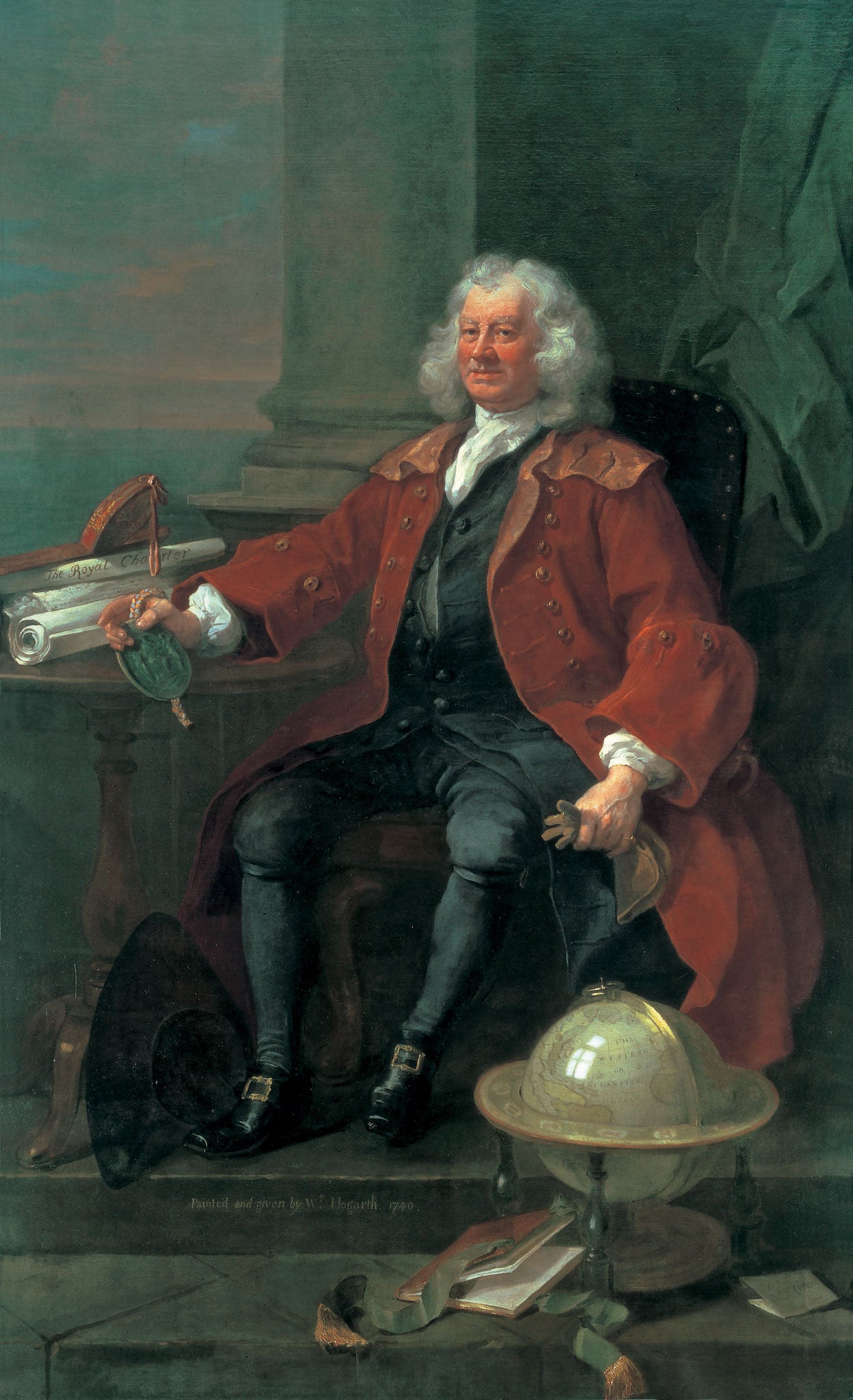Great Works: Captain Thomas Coram, 1740, by William Hogarth
Foundling Museum, London

Your support helps us to tell the story
From reproductive rights to climate change to Big Tech, The Independent is on the ground when the story is developing. Whether it's investigating the financials of Elon Musk's pro-Trump PAC or producing our latest documentary, 'The A Word', which shines a light on the American women fighting for reproductive rights, we know how important it is to parse out the facts from the messaging.
At such a critical moment in US history, we need reporters on the ground. Your donation allows us to keep sending journalists to speak to both sides of the story.
The Independent is trusted by Americans across the entire political spectrum. And unlike many other quality news outlets, we choose not to lock Americans out of our reporting and analysis with paywalls. We believe quality journalism should be available to everyone, paid for by those who can afford it.
Your support makes all the difference.There is something pleasingly disconcerting about Hogarth's common touch. This great, physically immense portrait of the sea captain who established London's Foundling Hospital, and poured his heart and his resources into other charitable causes too, still hangs in that wonderfully redemptive spot in Bloomsbury, presiding over the principal hall of its museum in a spirit of carelessly genial generosity.
Why disconcerting though? The point, surely, is that Hogarth is having at least half a joke here at the expense of the kind of self-aggrandising portraiture that great men (for the most part) would have been pleased to stare back at from time immemorial.
Here is the immense physical bulk of the man seated centre-stage, raised up on his own artist-signed, plinth-like step (it is signed and dated, note, in English and not Latin), as self-preening and self-inflating as some miraculous vegetable. We stare at him in wonderment. He is surrounded by the various trappings that help to define and proclaim his importance – a globe reminds us of his seafaring ventures, as does the seascape at his back, over which a blushing, roseate dawn seems to be rising.
We like the idea of that rising dawn, that picture of the day coming into being. It suggests renewal, lip-moistening optimism, hope ever eternally up-springing. We see the scrolled Royal Charter of the Hospital itself. He is grasping its seal, quite fiercely too. And then, just behind his right shoulder, we register the presence of a mighty column rising up, a structure which suggests the sturdy dependability of the classical ideal. A curtain has been drawn back as if there is someone here who deserves such a snare-drum visual flourish. He is some kind of a natural heir to all this, these details seems to be hinting.
And yet all is not quite as it seems: Captain Coram is more Falstaff than king. His waistcoat is rather carelessly unbuttoned, as is his outer coat. The sleeves of the coat are wide-bellied in a declamatory way, as if blown out in a sea wind. His feet, in their buckled shoes, do not quite touch ground. His hose are slightly wrinkled at the ankles. Those spread legs are not objects of beauty. He is what he is, Hogarth seems to be proclaiming, and nothing more than that. With his abundant hair, bluff complexion and that half-smile playing about his lips, he has about him an air of solidly normal dependability.
The scene, therefore, is slightly at odds with itself. It has an air of coolness that we tend to associate with visual ostentation, but it also looks, thanks to the character of its sitter, engagingly carefree and even chummy, as if it would also wish to claim kinship with the unruly warmth of domesticity.
About the artist: William Hogarth (1697-1764)
Born in Bartholomew Close, London, William Hogarth was the son of an impoverished teacher of Latin who spent time in the Fleet Prison for debt, and founded a coffee house at St John's Gate where only Latin was spoken. It was a commercial failure. A Freemason, William married Jane Thornhill in 1729, the daughter of Sir James Thornhill, also an artist. The childless couple fostered foundling children, and took a keen interest in the affairs of Captain Coram's Foundling Hospital.
Join our commenting forum
Join thought-provoking conversations, follow other Independent readers and see their replies
Comments